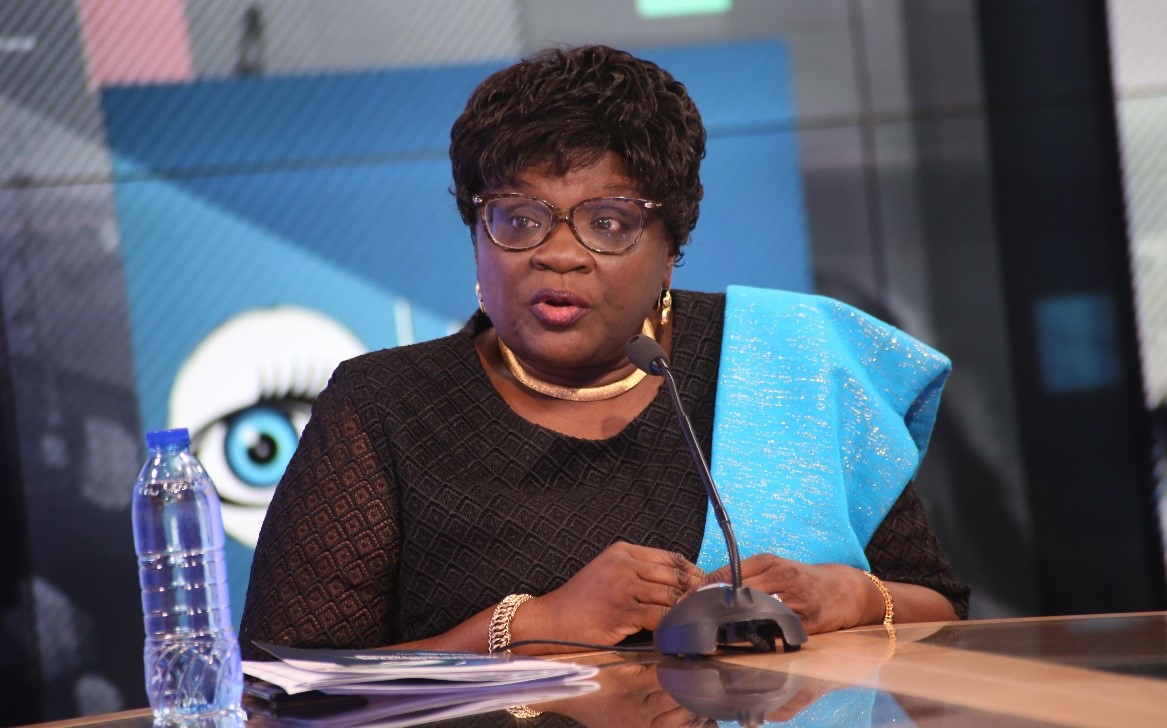Africa’s 'blue economy' agenda not impossible – International lawyer
The International Lawyer expressed her confidence in the 2016 Lomé Charter on Maritime Security and Safety and Development in Africa which she believes will play a major role in driving the agenda.

An International lawyer and a member of the AU Commission on International Law, Madam Kathleen Quartey Ayensu is confident and hopeful of the fact that Africa’s blue economy agenda will be realized.
She notes that even though the African Union has been slow in leveraging the African Charter on Maritime Transport 2010 to enable Africans to profitably partake in the maritime business, it is not impossible.
Speaking on Eye on Port, she noted that the AU is initiating various policies and agreements aimed at developing the continent's blue economy.
Madam Quartey, who is also the special rapporteur for piracy and maritime security at the AU Commission on International Law, indicated that the most important policy document in this regard for the continent is Africa’s Integrated Maritime Strategy (AIMS) 2050 because it is made up of long term action plans of the AU to enhance and achieve maritime viability for the continent.
Additionally, she said that the AIMs require every AU member country to come out with its national Integrated Maritime strategy thus referring to Ghana’s National Integrated Maritime Strategy (NIMS) as a document geared towards that objective.
Furthermore, Madam Kathleen mentioned African Charter on Maritime Transport 2010 revised, which is a document that seeks to return Africa’s economy to maritime trade thus enjoining all Africans to own vessels in that regard.
As an extensive roadmap and document for Africa’s maritime sector in Africa, the International Lawyer expressed her confidence in the 2016 Lomé Charter on Maritime Security and Safety and Development in Africa which she believes will play a major role in driving the agenda.
At the United Nations Ocean Conference 2022 (UNOC), which took place from 27 June to 01 July in Lisbon, Portugal, the AU delegation to the conference aimed to showcase and promote Africa’s blue economy and send a strong signal on Africa’s readiness to protect and sustainably develop its ocean resources as well as contribute to the global conversation on oceans by focusing on unlocking Africa’s potential for innovative, knowledge-based and high-revenue sectors while fostering sustainability and private sector activity, which further emphasis on the integration of women, youth and Africa’s scientific community within the blue economy.
As a result, the AUC co-organized various side events including two major Africa-focused events: the first event co-organized with IOC-UNESCO on ‘Accelerating innovation, science, and technology, and promoting the involvement of women and youth in Africa’s oceans and seas in the context of the ocean decade’ was held on 29th June 2022, and touched upon the need to address cultural norms and stereotypes on the one hand, and address resource gap on the other, and to strengthen women and youth’s participation in the blue economy.
The second event on “Shaping a sustainable Blue Economy in Africa” co-organized with AUDA-NEPAD, was held on 30th June 2022, and emphasized Africa’s vast amount of marine resources which are highly significant to global ecosystem services and need to be managed adequately for the benefits of the citizens;
The AU Commission also co-sponsored the following side events during three consecutive days: (i) ‘Blue innovation for multifunctional marine spatial planning’, together with the Stockholm Environment Institute and the Government of Sweden and Kenya on 28th June 2022. (ii) ‘Fostering international and regional cooperation in support of the sustainable development of the blue economy in LDCs, LLDCs, and SIDS’, together with the International Seabed Authority, on 29th June 2022; (iii) ‘Advancing women empowerment and leadership in marine scientific research to support inclusive sustainable ocean governance’, together with the International Seabed Authority on 30th June 2022.
Even though the veteran Lawyer, is hopeful that there has been a reawakening in the AU members relative to the blue economy despite a setback in 2020 due to the pandemic, she is concerned about the fact that the AU portfolio for the sector lumps up a burden on one person by placing sectors like Agric, Rural Development Blue Economy and Sustainable environment under one resident Commissioner.


